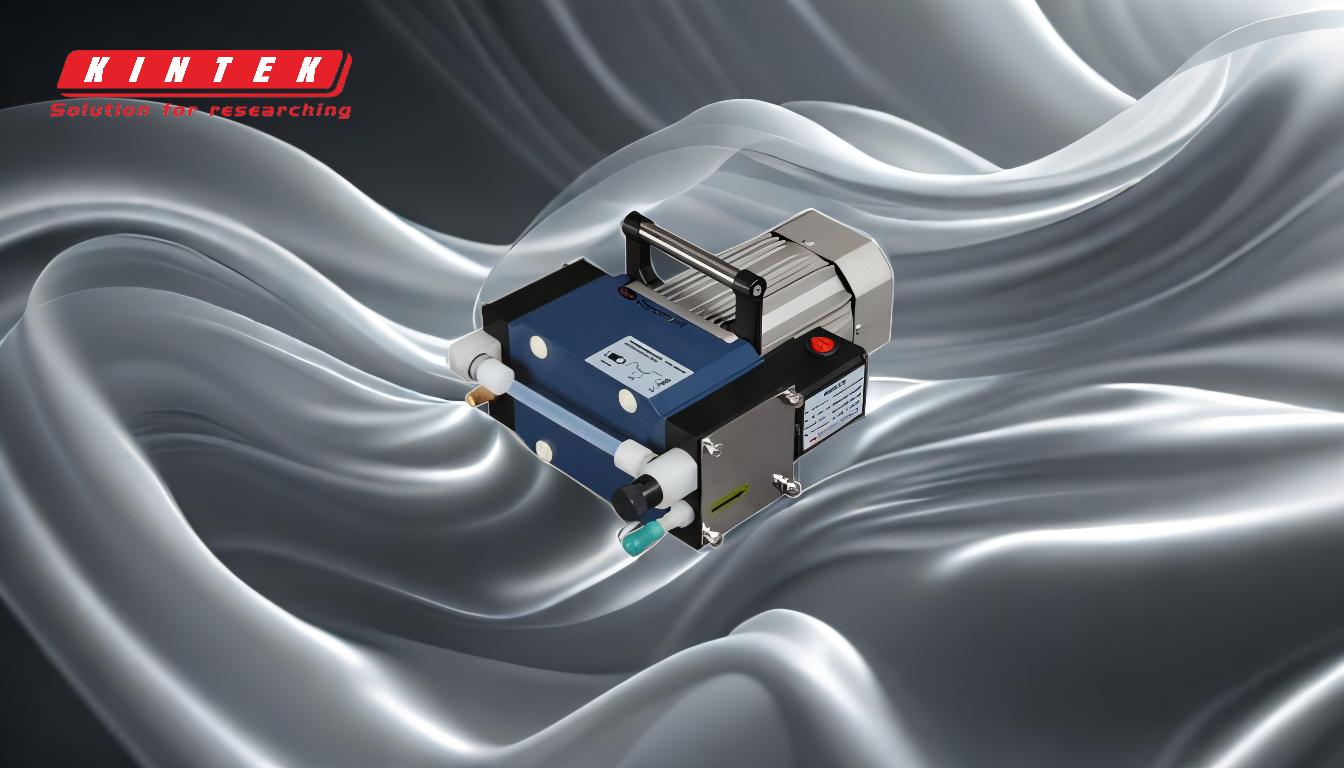Vacuum distillation is a technique used to lower the boiling points of substances by reducing the operating pressure, allowing distillation to occur at lower temperatures. This is particularly beneficial for heat-sensitive materials, as it prevents degradation and preserves the quality of the distillate. The pressure used in vacuum distillation varies depending on the application, but it typically ranges from a few millibars to several hundred millibars. For example, water, which boils at 100°C at sea-level atmospheric pressure (1000 mbar), can be distilled at much lower temperatures under reduced pressure (e.g., 45 mbar). This process is widely used in rotary evaporators (rotovaps) and short-path distillation systems to achieve efficient and gentle separation of compounds.
Key Points Explained:

-
Principle of Vacuum Distillation:
- Vacuum distillation works by reducing the pressure inside the distillation system, which lowers the boiling points of the substances being distilled.
- This allows for distillation to occur at lower temperatures, making it ideal for heat-sensitive materials that might degrade at higher temperatures.
-
Pressure Ranges in Vacuum Distillation:
- The pressure used in vacuum distillation typically ranges from a few millibars to several hundred millibars.
- For example, at 45 mbar, substances can be distilled at much lower temperatures compared to atmospheric pressure (1000 mbar).
-
Applications in Rotary Evaporators (Rotovaps):
- In a rotovap, the vacuum system significantly reduces the internal pressure, lowering the boiling points of solvents.
- This allows for faster and more efficient distillation at lower temperatures, preserving the quality of heat-sensitive materials.
-
Short-Path Distillation:
- Short-path distillation uses a vacuum to substantially decrease the boiling temperature by reducing the operating pressure.
- This is crucial for the distillation of heat-sensitive materials, as it allows the process to operate at lower temperatures.
-
Benefits of Lower Pressure:
- Lower pressure facilitates easier evaporation, allowing aromas and flavors to be extracted at lower temperatures without cooking the contents.
- It also ensures that vapors other than the source material are almost entirely removed before the process begins, improving the quality of the distillation.
-
Practical Example:
- At sea-level atmospheric pressure (1000 mbar), water boils at 100°C. However, under reduced pressure (e.g., 45 mbar), substances can be distilled at much lower temperatures, enabling a quick and gentle evaporation process.
-
Mechanism of Vapor Collection:
- Vacuum pressure is used to draw vapors from the evaporating flask into the condenser, where they are cooled and condensed back into liquids.
- These liquids are then collected as distillate, facilitating the separation of components.
-
Advantages for Heat-Sensitive Substances:
- Performing distillation under reduced pressure allows work to be carried out at milder temperatures, which is particularly advantageous for heat-sensitive substances.
- This prevents degradation and preserves the quality and taste of the ingredients.
By understanding these key points, one can appreciate the importance of vacuum pressure in distillation processes, particularly for applications involving heat-sensitive materials. The ability to control and adjust pressure allows for precise and efficient separation of compounds, making vacuum distillation a valuable technique in various industries.
Summary Table:
| Key Aspect | Details |
|---|---|
| Principle | Reduces pressure to lower boiling points, enabling distillation at lower temperatures. |
| Pressure Range | Typically ranges from a few millibars to several hundred millibars. |
| Applications | Rotary evaporators (rotovaps) and short-path distillation systems. |
| Benefits | Prevents degradation, preserves quality, and extracts flavors gently. |
| Example | Water boils at 100°C (1000 mbar) but can distill at lower temps (e.g., 45 mbar). |
| Advantages | Ideal for heat-sensitive materials, ensuring precise and efficient separation. |
Discover how vacuum distillation can enhance your processes—contact our experts today!












